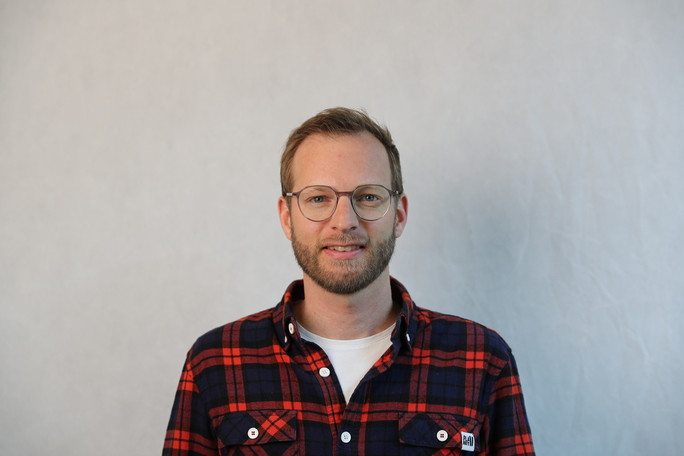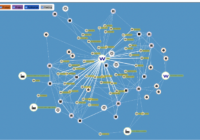
On meets Linknovate

Georg Singer is part of the Innovation Business Strategy team at On, what started as a Swiss startup is now considered “the fastest growing sports company in the world”. With a background in polymer science and engineering, he now leads projects centered around circular economy and new materials.

As an Innovation Business Strategy Specialist, what are your day-to-day tasks?
Our focus is on business development within the innovation department where it’s about revolutionary projects such as Cyclon. It’s a subscription model for a running shoe. You don’t own the shoe but pay a monthly fee. After your shoe has reached the end of its useful lifetime, you receive a new pair and send back the old one that gets recycled for the production of a new shoe.
It is a super exciting project, and we are currently launching it across the globe. My responsibility within this project is the entire back loop: from when the subscriber finishes using this one pair and receives the new one.

Another interesting topic is that although the recycled shoe will be used entirely to produce a new one, we still need to mix virgin material into the stream. The virgin material that we use for this type of shoe comes from castor beans, which is a bean that grows in very dry environments and does not compete with the food chain because it’s not an edible bean. From a sustainability point of view this is also very important to us: we use materials that are non-fossil based and don’t compete with the food chain. Hence, we don’t use first generation sugars as feedstock such as corn or soy to produce our polymers.
We not only look into mechanical recycling, but also chemical recycling where the beauty is, that you can recycle materials in a closed loop yielding the same properties as virgin materials. That’s also something that many industries besides footwear, are looking into.
How did you find out about Linknovate?
I had always worked in R&D positions and last year (2021) I shifted my career towards innovation strategy and new business models for the footwear and apparel industry. When I started at On I was looking into technology and innovation and I remembered Linknovate, a startup I knew about from a personal connection back in 2016. It was interesting because the concept of the company evolved over the years and changed its focus.

In all this research process in which you’re investigating about new materials, chemical reclycing and new supply chains, what tools do you use?
So first of all, the company On was founded in 2014 so it’s quite young. Pre-pandemic, we were globally, maybe around 500 people. Today, after the pandemic, we are approx. 1500 people. We are growing at an incredible pace, including the innovation department. We have different teams each focused on specific research. So, when I came into the company, I saw that there was a need for a more structured approach to research. That’s when we started the conversation with Manuel (Linknovate’s CEO). We did a trial, the team liked it and we quickly saw the benefit of using it.
I think since we are exploring many topics at a very early stage and there are a lot of startups popping up everywhere around the globe developing new materials, Linknovate is great to see a little bit better what’s happening out there. If there is anything new coming up that might be of interest to us, we can catch that on an early stage.
Also, I think it is quite useful for keeping an eye on the entire market within the industry. You can quickly identify existing partnerships in certain fields of research. When you research a topic, it is very helpful to get a complete picture of the landscape.
We are also using a specific tool for patent search but the beauty of Linknovate is that it might not be the best tool for patents only, but you get a bigger overview, which is exactly what we need right now.
“Linknovate is great to see what’s happening out there. If there is anything new coming up that might be of interest to us, we can catch that on an early stage.”
And what is the benefit for you and your colleagues?
The feedback I heard from my teammates was that they found things that they wouldn’t have found otherwise. Also one of the biggest benefits is that thanks to Linknovate’s feed you can keep up to date with a topic when otherwise you would have to really block your calendar and say: “Okay, I’m doing research now and in six months from now to see what has happened.” There’s one example where we did kind of a big scouting. We started a year ago on a technology and when we looked at the market, now, after a year, it looked completely different. There’s so many more companies out there. You would really need to look into that on a regular basis. And therefore, I think it’s a great benefit of Linknovate where you can get a regular update and catch these things popping up.
What other emerging trends do you see in the industry that you can share with our audience?
It’s a bit hard for me to tell what are the newest trends as I haven’t been in the footwear industry for very long, but what I see within sustainability is how to increase the content of recycled materials. That’s one thing. Circularity and closing the loop would be another. How will a circular economy work from an industrial point of view? One brand alone won’t solve the circular economy, it must be a shared, common effort. It’s now a bit of a race on which brand is the first one to show its feasibility and then be associated with it, but in the long run, it will become common practice eventually.

The question that also needs to be answered is if a circular economy is actually the solution from a lifecycle assessment point of view, or if it’s maybe better to have a linear economy that uses materials that are designed in a smarter way for better recycling. And then the question what do you do with those recycled materials afterwards?
So how do you think this question you’re asking, circular versus linear economy, will change the industry in 5 to 10 years?
I think in the future we, as a society, will be much more informed about the real impact of our operations and our consumption. Today everybody wants to be more sustainable but it’s difficult to figure out what is greenwashing and what has a real positive impact. Especially with the inflationary use of the word ‘sustainable’. This is where I like On very much as a company because we’re super careful about really making impactful changes.
There needs to be a lot of definition happening across the industry, because now every company has its own definition of what is circular or what is sustainable. What do you mean by recycling, by downcycling, by upcycling? There are so many terms around that there needs to become a common understanding on what is it what we’re actually doing and what is the impact we are generating.

Topic Evolution per year for the terms “Circular Economy” AND “Linear Economy”. Graph shows how both terms were hardly discussed together before 2018. Source: Linknovate
And then, looking at the impact, I think we are in a very early stage of actually being able to assess the impact of things over the entire lifecycle. If you want to do a real, full lifecycle assessment and CO2 balance, you need to consider from where the raw materials are getting extracted from nature until the end of life of the final product and we’re just lacking data on that. That’s why I’m saying that maybe circular economy is not the best answer but a step in the right direction.
For sure, it might be better than many other current ways of doing things. But also, what does a circular economy actually trigger? Does it increase overconsumption? Even though the consumption is of maybe less impactful products, at the end of the day if you need more products, it’s actually a bigger impact on the environment.
“Maybe circular economy is not the best answer.”
So I think we still can’t assess our full impact and once we can this might affect the future and the way we do things might change again. Now, everybody goes for circularity, but maybe the answer is something else like designing for recycling using different materials and recovering the resources in a different way. It’s more of a philosophical answer to the question (laughing).

It is a really interesting debate. So besides the use of Linknovate how do you stay up to date? Do you go to industry events, do you read any particular blogs?
Yes, so we definitely go to conferences, listen to webinars, read blogs. I should definitely be reading more than I do but with the daily workload I don’t get to stay up to date with many things. I think that’s also where Linknovate can definitely help.
Attending events is also super important so you can build these personal interactions in your real-life network in the field. As I said, the topic of circular economy will be a shared effort. And I think that to drive these things forward, it’s super important to have these strong personal connections with other people in the industry.
There was just one conference recently in NY that is at the forefront of technology: BioFabricate, which is about bio based materials, one of the big topics in the industry.
This is also where I hope to make good use of Linknovate on this field in specific because it is very niche and there is not so much information out there. I have high hopes that your platform will provide nice updates for this query in particular.





